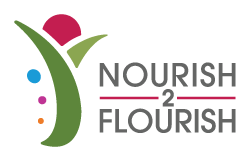Thinking of Going Keto or IF - Let's Talk Sustainability Instead!
It’s been while since I have blogged but I think it’s time I clarified my thoughts on some of the “diets” out there. First, the term diet means food or drink regularly consumed or provided. What we typically eat is considered our diet. That said, the term diet has a different meaning overall and it’s thought more as a protocol or plan, including specific foods and eliminating certain foods. It’s basically considered a taboo, four letter word.
Over the years we have seen many “diets” come and go but the biggest shift was probably the demonization of fat, starting in the 1970s. That caused us all to try to avoid as much fat as possible (I know I ate my share of Snackwells). Of course, fat had to be replaced with something, and that was sugar. Most of us realize that this was too far of a shift and was based on some flawed information.
What came next? The ketogenic or “keto” diet craze, which was a dramatic shift to consuming mostly fat (70-80% of calories). The keto diet was originally created in the 1920s to help with epileptic seizures, with positive results. Do I favor or endorse the keto diet - in general, no! It can be helpful with blood sugar issues, Alzheimers disease or obesity, but not followed long term. For general use, I think the keto diet is too extreme and has swung the pendulum too far in opposite direction from the low-fat craze. What are some of the concerns with a strict ketogenic diet?
It can become more difficult to hit higher intensity exercise
It can negatively affect thyroid and reproductive hormones, (especially in women!)
It’s challenging to maintain long term
Note that these issues can be overcome in the short term, with proper supplementation and careful selection of foods, but many people do not take the time to analyze their diet and supplement and/or revise foods to overcome deficiencies.
What I do endorse is metabolic flexibility, which is the ability to burn carbohydrates (particularly during higher intensity exercise) and fat. Because the Standard American Diet (SAD) is heavily focused on sugar and high glycemic carbohydrates, most people are much better at burning carbohydrates than fat. Dietary changes can be made to help them to become better fat burners, which does include increasing dietary fat, but not to the level of the keto diet. You can achieve great fat burning benefits by increasing dietary fat and focusing on lower glycemic carbs (remember vegetables are carbs!) but it’s important to look at timing of the carbohydrate intake, particularly for females and athletes.
Another trend is intermittent fasting (IF) or time restricted feeding (TRF). Again, fasting does have some health benefits but does have some health detriments. You can read more about my approach and why I only endorse intentional TRF periods for a few days, a few times per year. Sadly, I see many people fasting too often and doing fasted workouts too frequently. This can negatively impact hormones, particularly with women. In addition, this can trigger anyone with a history of an eating disorder or disordered eating. My biggest recommendation to clients is that fasting and fasted workouts need to be intentional, serve a purpose and timed appropriately.
What about calorie restriction? This doesn’t work! Hormones have a significant impact on weight management and most new clients that desire weight loss are not eating enough. My only reason for looking at calorie intake is the ensure a client is eating enough.
My overall philosophy is to eat real food, more like our ancestors. When I meet with older clients they are often relieved that my recommendations are similar to the way they ate as children. Pasture-raised butter can be used to cook again and the plate is filled with real food, like fruits and vegetables. No macronutrient is demonized, including carbohydrates! I do recommend that carbohydrates come largely from real food sources (vegetables and fruit), but carbs are a necessary part of our diet. Processed carbs are built in a lab with the goal of getting us to consume more. You know… as the Lay’s potato chip slogan goes… you can’t eat just one! We also need quality protein and fat. Both of these should come from as natural source as possible (avocado oil vs. canola oil, pastured raised eggs vs. caged eggs…).
The most important thing I stress with clients is sustainability. We discussed what foods and habits bring happiness and are important to each client. Even if these are things are not in line with a client’s health goal, it’s still important that we include them, in moderation. If we don’t, we are creating a plan that is not sustainable. Sustainability is one of the most important things to me when I work with a client. This looks different with every client and will change as life evolves but that’s what makes life worth living!



